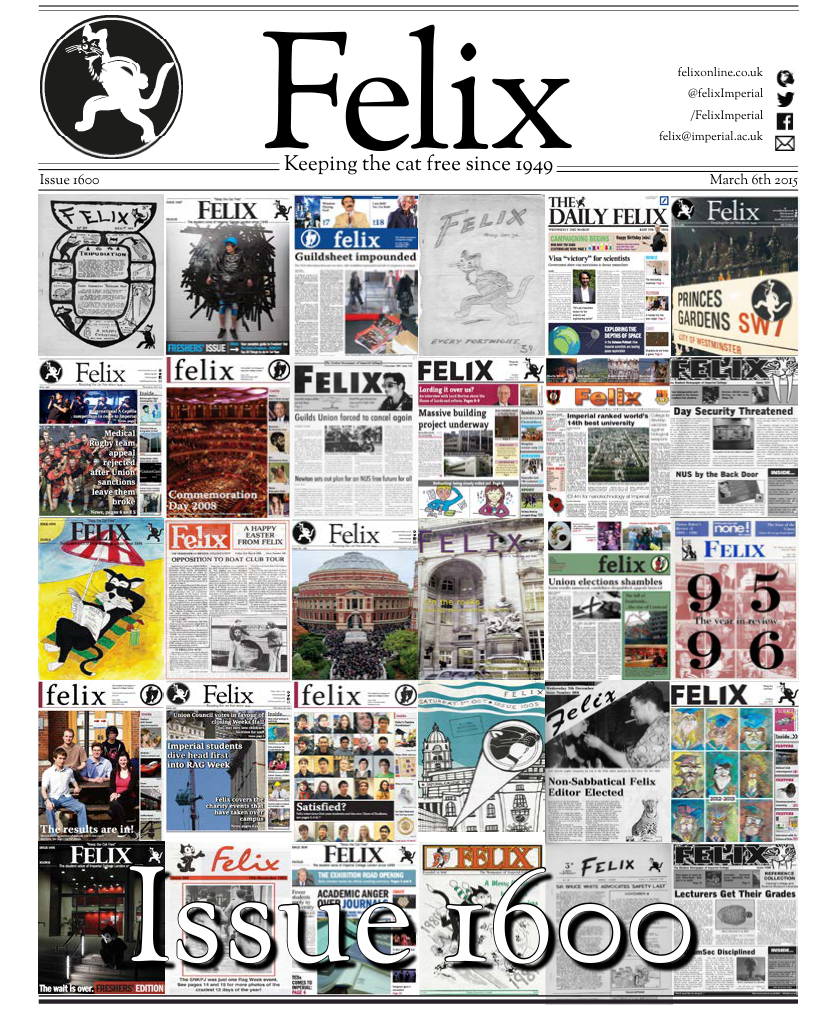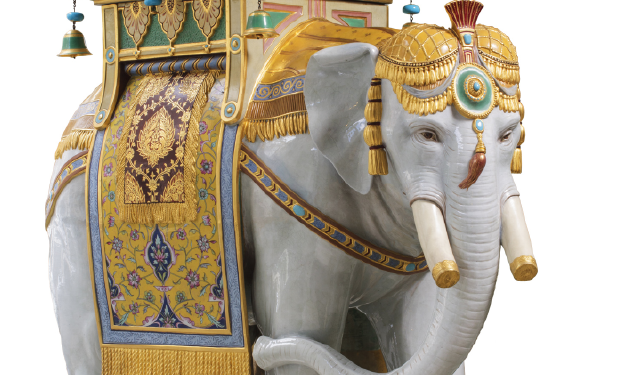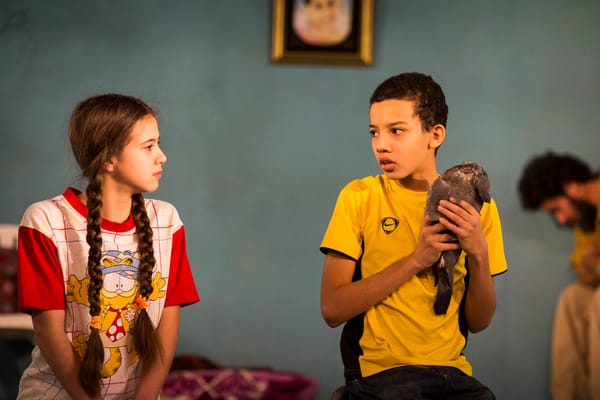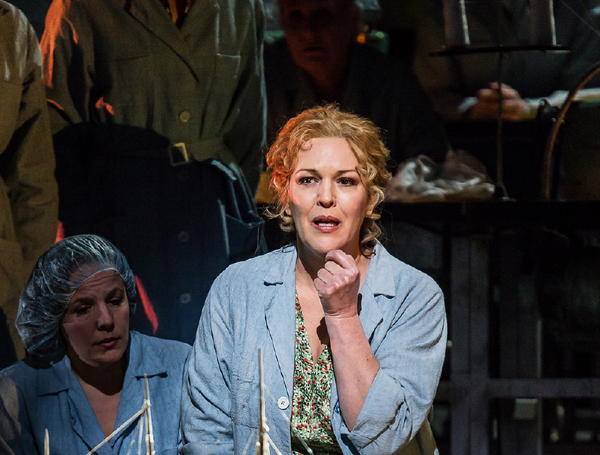My Favourite Author – Margaret Atwood
Fred Fyles takes us through the work of his favourite writer
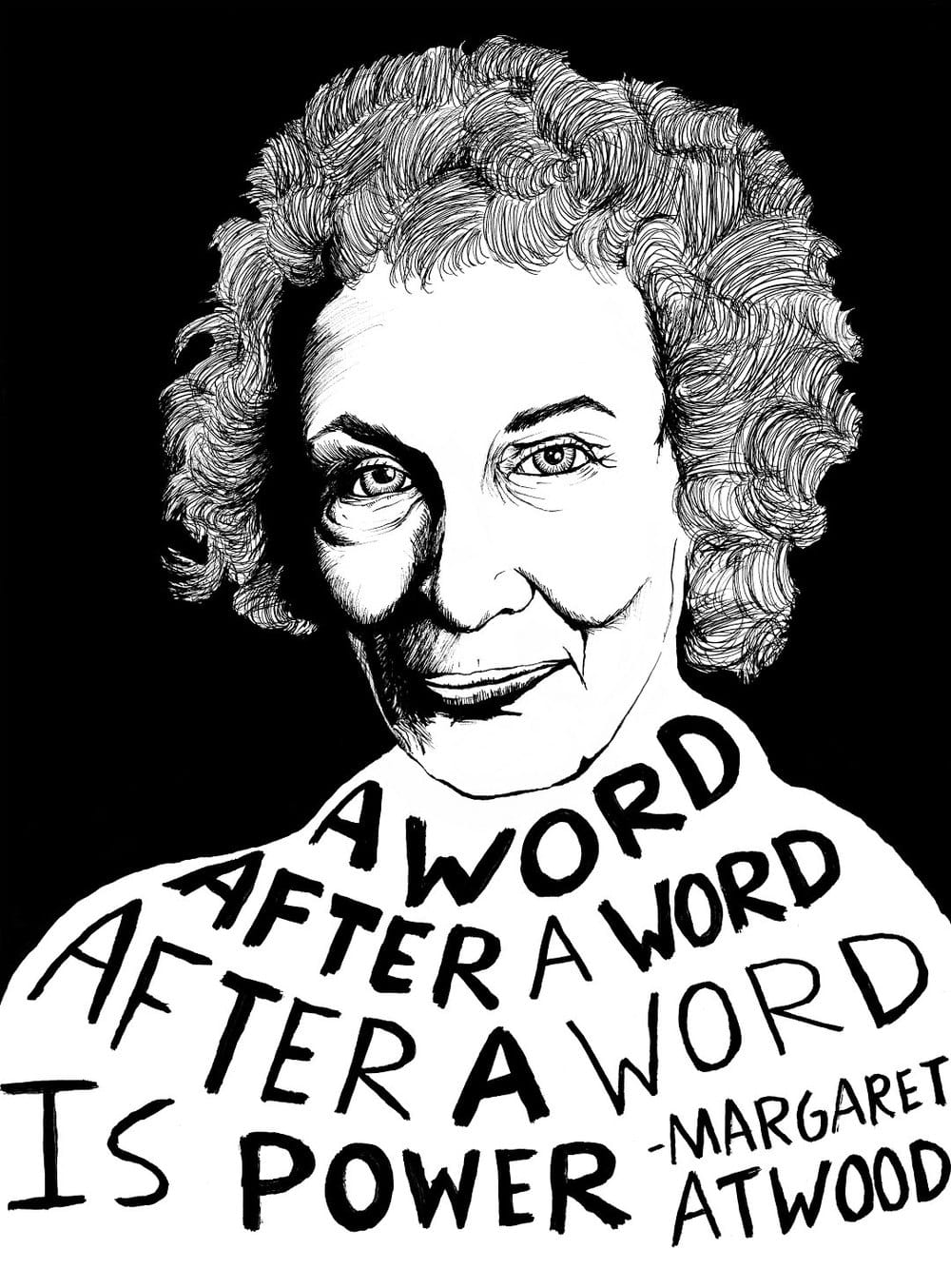
The first book that I can remember being upset at finishing, not just sad, but actually physically hurt, was Margaret Atwood’s The Handmaid’s Tale. A story of a future in which radical Christians have transformed America into a theocracy, and the declining fertility rate has led to the remaining fecund women being enslaved as ‘handmaids’, The Handmaid’s Tale kick-started in this prepubescent boy a love of dystopian fiction; 1984, Brave New World, We, these all followed in rapid succession, but none could match the joy I felt when reading Atwood’s carefully crafted prose.
Luckily, I found a fellow confidante in my mother: a big fan of Atwood, her collection stood proud on our bookshelves, their green spines and bitten apple logo indicating that they were printed by feminist publishers Virago Press. And so I gorged. Gorged myself on cannibalistic rituals involving women made of cake; on themes of Canadian nationalism and a return to nature; on the inner thought of artists, and writers, and paleontologists, and students, all brought to life thanks to Atwood’s deft wit. Reading Atwood’s novels, so many of them are concerned with rural Canada, a dichotomous environment of majesty and fury, beauty and pain. They made me yearn for a country I have never visited yet could clearly picture, for a place that could not be more different from my North London living room but which still seemed familiar.
Her body of work is enormous, not only in scope but volume too: fourteen novels; fifteen books of poetry; nine short story collections; three libretti; the list goes on. Her novels wilfully defy categorisation. When people started saying that she was a feminist writer, she politely corrected them: “The Edible Woman, [Atwood’s first novel] is protofeminist rather than feminist: there was no women’s movement in sight when I was composing the book in 1965... though like many at the time I’d read Betty Friedan and Simone de Beauvoir behind closed doors”. Instead of giving her Oryx and Crake trilogy the moniker of science-fiction, she instead calls them speculative fiction, telling us in no uncertain terms that there are “no martians”. This slipperiness, this struggle against conformity, which has continued throughout a career that has entered its fifth decade, is what sets her work apart, lifting her higher than any writer currently working
Sometimes, if I am feeling down, I get up a picture of her on my computer screen; she’s the only person I know in whose physical features genius is manifestly evident. It’s there, in her eyes. A glimmer. A gleam. And in her mouth too, the way her lips curl slightly upwards at the ends, as if constantly laughing at her own private joke.
They give an indication, a suggestion, of a mind at work; a mind that’s constantly ticking over, scheming, laying out plans, keeping itself busy. A mind for which we should be thankful. A mind that makes the world so much bigger than I can possibly imagine.


